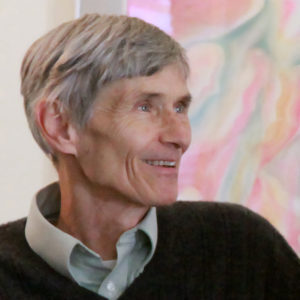Conflict and the Examined Life
By Dennis Klocek 3 min read
In ancient times philosophers never considered their own soul life as existing separately from the world. It was widely believed that the personal will of a soul had a weak but perceptible effect on the way that the world unfolded. The weak effect became perceptible only if a soul took up the spiritual practice of examining personal motives for living. This was called the path of the examined life. It was understood that if, through a spiritual practice a person worked on his or her fixed ideas that the sustained effort of will to do that eventually resulted in a progressive change in the world. By contrast, today’s progressive world changes are thought to primarily result from the imposition of external regulations requiring individuals to become compliant with outer authority. This type of thinking results in such ideas as globalization of world trade as an economical path to prosperity for all. Unfortunately, it is the external compliance system in an over-regulation mode that creates most of the conflict generating energy in western countries.
The root of this issue can be found in the hyper-individual entitlement expectations that permeate the world outlook of most contemporary persons. Entitled hyper-individualism results from the radical rise of an impulse towards self-recognition in people today. While self-recognition is a valuable force in the soul of an individual, unexamined self-recognition egoistically separates the self from others. Egoistic separation makes it challenging to produce governance strategies wise enough to work for everyone. The tension between unexamined, entitled hyper-individualism and externally instigated compliance regulations can be seen as a root cause of most conflict in the world. This trend often manifests as some form of fundamentalist system that is imposed from the outside on an already existing social structure.
The most pressing task of the esoteric student today is to break this cycle of conflict by realizing that an individual adds to the climate of conflict when he or she is not clear about the difference in the will between personal belief and collective belief. Most often a collectively held belief is automatically at odds with someone’s personal belief. When a collectively held belief prevents some individual from holding his or her own personal belief then that is a root condition for feelings of conflict. The usual result of this tension is the forming of punitive law.
The conflict/law pattern challenges the esoteric student to find in the self, the ultimate causes of conflict growing out of fixed beliefs, whether the beliefs are part of a collective belief or individually held. This search in the self for fixed beliefs is the examined life. The intent is to discover the urge in oneself that seeks to overpower another’s opinion. Esoterically this is a misuse of will. If a person operates with belief structures that are based on overpowering others’ thoughts, then those beliefs are not creative and active in the will but are fundamentalist and fixed in the will. The polar relationship between creative and fundamentalist wills can be seen in the tendency for people to much prefer hearing about how someone has struggled creatively to live an examined life (Nelson Mandela et al) as opposed to being preached to about the virtues allegedly produced by a particular way of living.
Today, simply by living, every individual is challenged to examine the problem of conflict. But there is no blame in this challenge. It is a spiritual reality that until an individual examines his or her own motives, it is not progressive to say that someone else is not entitled to hold an opinion. This does not mean that all opinions are valid. It just means that another is entitled to hold that opinion based on their life experience. The task is to be able to distinguish between an opinion poorly formed and the spiritual reality of the person who formed it. To do that the esoteric student must live the examined life. The Chinese I Ching states, “Get yourself in order, then your family in order, then your state in order, in that order”. This flies in the face of contemporary phenomena like blogging but it is a wise practice to adopt for the integrity and balance of the inner life. A practice adopted to do this critical work creates will forces that go out and change the world.

Dennis Klocek
Dennis Klocek, MFA, is co-founder of the Coros Institute, an internationally renowned lecturer, and teacher. He is the author of nine books, including the newly released Colors of the Soul; Esoteric Physiology and also Sacred Agriculture: The Alchemy of Biodynamics. He regularly shares his alchemical, spiritual, and scientific insights at soilsoulandspirit.com.
2 Comments
Leave a Comment
Similar Writings
In the Lab: Using a Simple Still for Home Extraction of Essential Oils
Join Dennis, an experienced gardener with 50 years of expertise, as he walks you through the detailed process of distilling essential oils from medicinal plants, specifically lemon balm. Learn how to use an old pressure cooker as a functional still, the importance of proper herb preparation, and the step-by-step distillation process using various laboratory glassware…
Recursive Thinking
Computers use formulas known as algorithms that dictate mathematically how changes are being created in a set of inputs. A researcher converts data from an experiment into mathematical equations or algorithms that are repeated or iterated many, many times by a computer. The logic language in constructing such a formula is, “if this, then :…
Dennis Klocek for President – or Precedence! The examined life takes Precedence, the return of EL and spiritual sanctity of human life. (One can dream…..). Thank you!!
Sage advice. Much appreciated.